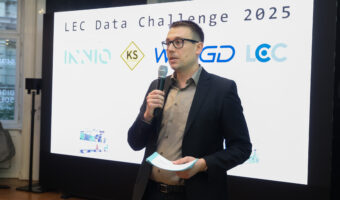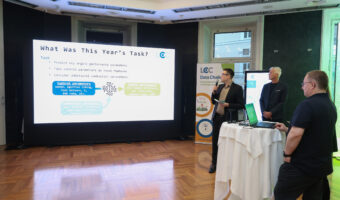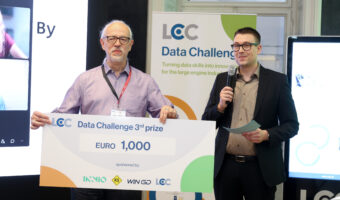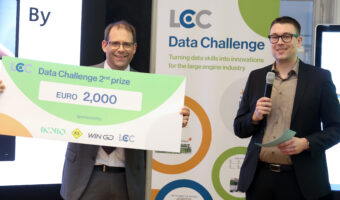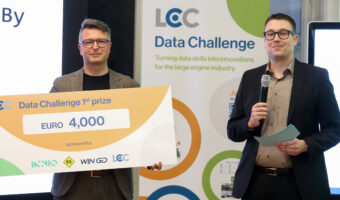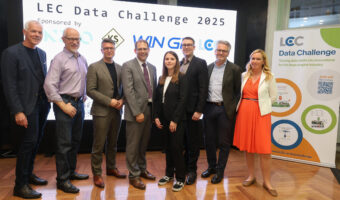LEC Data Challenge 2025: The winners have been announced!
LEC Data Challenge 2025: The winners have been announced!
At the beginning of September, five finalist teams from France, Algeria, Italy, Korea, Czechia, Spain and Austria presented their approaches to a jury of experts headed by Christian Laubichler (LEC). The jury then selected the three best entries. The award ceremony took place during the symposium ‘Sustainability in Mobility, Transport and Power Generation’ at the Graz Congress.
These are the LEC Data Challenge winners 2025:
🥇1st place endowed with 4,000 euros, sponsored by INNIO:
Team Lube Engine Competence from Austria , Bernhard Lube
🥈2nd place endowed with 2,000 euros, sponsored by KS Engineers:
Team KoreAI from the Republic of Korea, JongHyeon Bae, Juseong Kim
🥉3rd place endowed with 1.000 euro, sponsored by WINGD:
Team Artli from the Republic of Czech and Spain, Adela Lukes, Almar Munoz
Here’s what our winners have to say about the LEC Data Challenge:

LEC DC Winner 2025 Bernhard Lube
Expert in mechanical engineering specializing in energy technology, computer-aided engineering
Bernhard from the winning team said:
“I am very happy that my solution produced the best results and that I was able to convince the jury with my presentation. Given my limited experience in data science, this makes me proud and encourages me to further pursue this field.”
„I think the key to beating the competition was my optimised but, compared to the other finalists, simple concept. The task of the challenge was relatively straightforward, favouring simple solution approaches”
„One difficulty was that the control parameters had different ranges in the test and training datasets. It was interesting to me how, compared to engineering tasks, where information can be acquired from various sources, the training dataset was the only source of information.“
„A friend and fellow student pointed it out to me. I will graduate and commit to a career path before the next edition of the challenge takes place, so it is hard to say if I will compete again. But if the task of the next challenge suits my abilities, I can imagine trying to defend the title”
JongHyeon Bae from the KoreAI team said:
“What I enjoyed most was interpreting the complex patterns in industrial data with AI and combining them with physical laws and process knowledge to solve problems. In particular, under the concept of “data and physics in harmony,” I found it deeply rewarding to engineer physically grounded features of large engines and encode constraints into the model, thereby enhancing both the reliability and interpretability of our predictions.”“An interesting part was that the training data included ACP values, while the test data did not. This encouraged us to think creatively about how to use ACP information during training, which made the task both engaging and challenging. The hardest part was achieving consistent performance improvements, but working together to try different ideas and support each other made the process much more meaningful.”
“We first heard about the LEC Data Challenge two years ago through a colleague. At that time, we couldn’t join, so we were especially glad to finally take part this year as a team. The experience helped us grow not only in our technical skills but also in our teamwork, and we would be very happy to participate again in the future. We also hope that young people will have more opportunities to take part in challenges like this.”

The runners-up JongHyeon Bae and Juseong Kim
Experts in the field of artificial intelligence – machine learning and bioinformatics
Third place winners Adéla Lukes from the Artli team:
“Participating in the LEC Data Challenge was a great experience! We enjoyed tackling a real-world problem predicting key engine performance metrics.The task was both engaging and challenging, especially finding the best way to model the complex relationships using neural networks. We would definitely participate again.
It was a fun and rewarding opportunity to apply data science to an exciting engineering problem and learn from the broader community. ”

